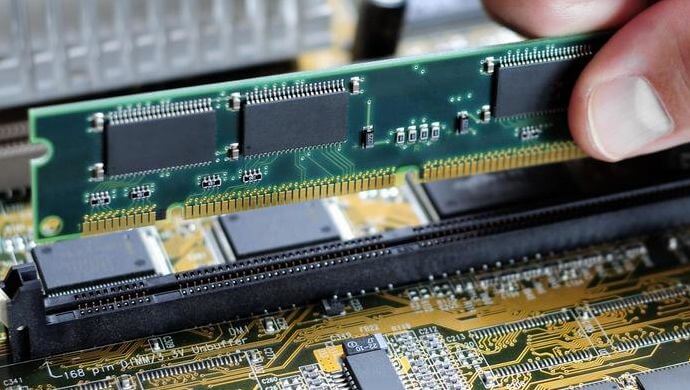Position: Resource - Disk Utilities - 32 Bit vs 64 Bit Computer: What's the Difference?
When shopping for a computer or installing OS and software, you've probably encountered terms like "64-bit" and "32-bit." But what do these terms mean, and why should you care? Understanding the differences can help you make better decisions regarding your computer's performance and compatibility. This article will break down what 32-bit and 64-bit mean, how they impact your computer's performance, and why you should care.
To start, let's understand what "32-bit" and "64-bit" refer to. The terms 64-bit and 32-bit refer to the way a computer's processor handles information. Specifically, it pertains to the width of the CPU's registers, which are small storage areas used to quickly access data. A 64-bit processor can handle 64 bits of data at once, while a 32-bit processor can handle 32 bits of data. This fundamental difference influences many aspects of a computer's performance and capability.

The difference can be found in following aspects which help you understand which one is better:
Memory (RAM)
One of the most significant differences between 32-bit and 64-bit systems is the amount of memory (RAM) they can utilize. A 32-bit system can address up to 4 GB of RAM, which might be sufficient for basic tasks like browsing the web or writing documents. However, for more demanding applications, such as video editing, gaming, or running multiple applications simultaneously, 4 GB of RAM can be limiting.
In contrast, a 64-bit system can address exponentially more RAM up to 18.4 million TB. While no consumer computer currently uses that much memory, the ability to support more than 4 GB of RAM allows for better multitasking and improved performance in memory-intensive applications.

Software Compatibility
Transitioning from memory capabilities, let's discuss performance. A 64-bit processor can handle more data at once, leading to faster performance, especially in applications designed to take advantage of 64-bit architecture. This means that tasks like video rendering, large-scale calculations, and running virtual machines can be significantly faster on a 64-bit system.
However, software compatibility is also a crucial factor. Most modern software is designed to run on 64-bit systems, but some older programs and devices may only support 32-bit. Fortunately, a 64-bit system can run 32-bit software, although the reverse is not true. If you're using legacy software, ensure it's compatible with a 64-bit system or check if there's a 64-bit version available.
Operating System Requirements
Moving on to operating systems, they too come in 32-bit and 64-bit versions. To utilize the benefits of a 64-bit processor, you need a 64-bit operating system. Popular operating systems like Windows, macOS, and various Linux distributions offer both versions. Installing a 64-bit OS on a compatible processor allows you to take full advantage of the system's capabilities, including better performance and the ability to use more RAM.
Gaming and multimedia
Speaking of gaming and multimedia, the difference between 64-bit and 32-bit can be quite noticeable. Modern games and multimedia applications are typically designed to take advantage of 64-bit architecture, allowing for better graphics, faster loading times, and improved overall performance. If you're a gamer or someone who frequently works with high-resolution video or large graphic files, a 64-bit system is almost essential to meet your performance needs.
Security Benefits
From a security standpoint, 64-bit systems also have an edge. They include advanced security features not available on 32-bit systems, such as hardware-based data execution prevention (DEP), which helps protect against certain types of malware. Additionally, many security software programs are optimized for 64-bit systems, providing enhanced protection against the latest threats.
Knowing whether your computer is running a 32-bit or 64-bit system can help you understand its capabilities and compatibility with various software. If you're not sure whether your computer is 32-bit or 64-bit, you can follow these steps to have a check:
Step 1. Click on the Start button or press the Windows key on your keyboard, then select the gear icon to open the Settings menu.
Step 2. In the Settings menu, click on "System", and then scroll down to locate the "About" in the left-hand menu.
Step 3. Under the "Device specifications" section, look for "System type" where you'll see whether your system is 32-bit or 64-bit.

Finally, when deciding between a 64-bit and a 32-bit system, it often comes down to your specific needs and futureproofing your investment. For most users, especially those purchasing new computers or looking to upgrade, a 64-bit system is the recommended choice due to its superior performance, compatibility, and security benefits. However, if you have an older system or specific requirements for 32-bit applications, sticking with a 32-bit system might be necessary.

DiskGenius is a one-stop solution to recover lost data, manage partitions, and back up data in Windows.
Download